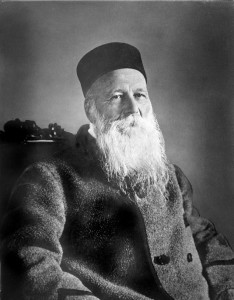WHY DID Great Britain stay neutral during the American Civil War? Back when I was researching this question, one answer that seemed particularly intriguing was the claim — made at the time in America and by subsequent historians — that it was due to a severe wheat shortage.
Repeated crop failures in the early 1860s had led to a massive reliance on imports from America and Russia. Ergo, Britain intervening in the war between the states would have been an unaffordable risk.
I combed through four years of cabinet reports, memoranda, letters and diaries, looking for proof. Cotton, slavery, Canada, blockade running, the balance of power: these were frequent subjects of fretful debate, but never wheat. The paper record showed the theory to be an utter dud, thereby freeing me to find the true causes of British neutrality.
I tell this story because I don’t see any point in hiding the fact that I am entirely partisan in the debate about government transparency. I believe that everything should be maintained in its proper place. What is classified should remain so, what is public should be open, and all must be preserved for future scrutiny.








